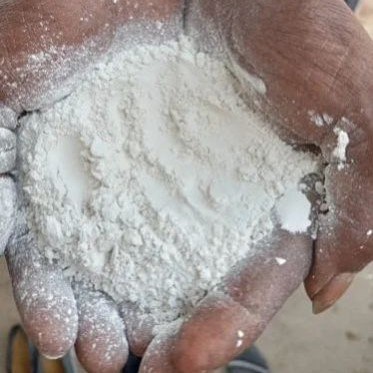Also known as slaked lime, this is a fine, odorless, white powder created by adding water to quicklime in a controlled process. As a strong base with a high pH, it is excellent for neutralization reactions. It’s a stable, safe-to-handle compound with a variety of uses:
Slaked Lime (Calcium Hydroxide) – A Versatile Compound
Also known as hydrated lime or calcium hydroxide, slaked lime is a fine, odorless, white powder obtained by carefully adding water to quicklime (calcium oxide) in a controlled process. This exothermic reaction produces a stable, safe-to-handle material with a high pH, making it a powerful alkali for a wide range of industrial, agricultural, and environmental applications.
1. Construction Industry
Mortars & Plasters: Widely used in masonry work, slaked lime improves plasticity, workability, and water retention of mortars and plasters, giving stronger and more durable finishes.
Stucco & Whitewash: Acts as a binding agent and provides a bright, smooth finish for decorative and protective coatings.
Soil Stabilization: When mixed with clayey soils, slaked lime reduces plasticity and increases the load-bearing strength of sub-grades. This is particularly useful in the construction of roads, highways, and building foundations, where stable ground conditions are essential.
Autoclaved Aerated Concrete (AAC) Blocks: Slaked lime is a key ingredient in lightweight, eco-friendly construction materials.
2. Water and Wastewater Treatment
pH Adjustment: Its strong alkaline nature makes it highly effective in neutralizing acidic waters.
Impurity Removal: Helps in the coagulation and flocculation of suspended solids, heavy metals, and organic matter, clarifying drinking water and industrial effluents.
Softening of Water: Removes hardness by precipitating calcium and magnesium salts.
Environmental Protection: Widely used in treating sewage sludge and industrial wastewater to meet environmental safety standards.
3. Agriculture & Soil Improvement
Soil Liming: Neutralizes acidic soils, raising pH levels and improving nutrient availability for crops.
Enhances Fertility: Promotes the uptake of essential nutrients like nitrogen, phosphorus, and potassium, ensuring better crop yields.
Pest and Disease Control: Sometimes applied as a protective coating on trees (lime wash) to prevent fungal growth and insect infestation.
Composting: Helps in accelerating decomposition of organic waste, reducing odor, and controlling harmful pathogens.
4. Chemical Industry Applications
Manufacturing of Chemicals: Used in the production of calcium carbonate, bleaching powder, calcium salts, and other chemical derivatives.
Paper Industry: Plays a crucial role in the causticizing process for paper pulp production.
Sugar Industry: Helps in clarifying sugar juice by removing impurities before crystallization.
Food Industry: Used in food processing (in controlled quantities) for pickling, fortifying water, and as an acidity regulator.
5. Other Key Applications
Leather Industry: Used in tanning processes to remove hair and prepare hides.
Pharmaceuticals & Cosmetics: Incorporated in some formulations for its neutralizing and stabilizing properties.
Flue Gas Treatment: Helps in reducing harmful emissions (SO₂, acid gases) from industrial exhausts.
Disinfectant & Sanitation: Lime water acts as a cost-effective disinfectant for public health uses.






